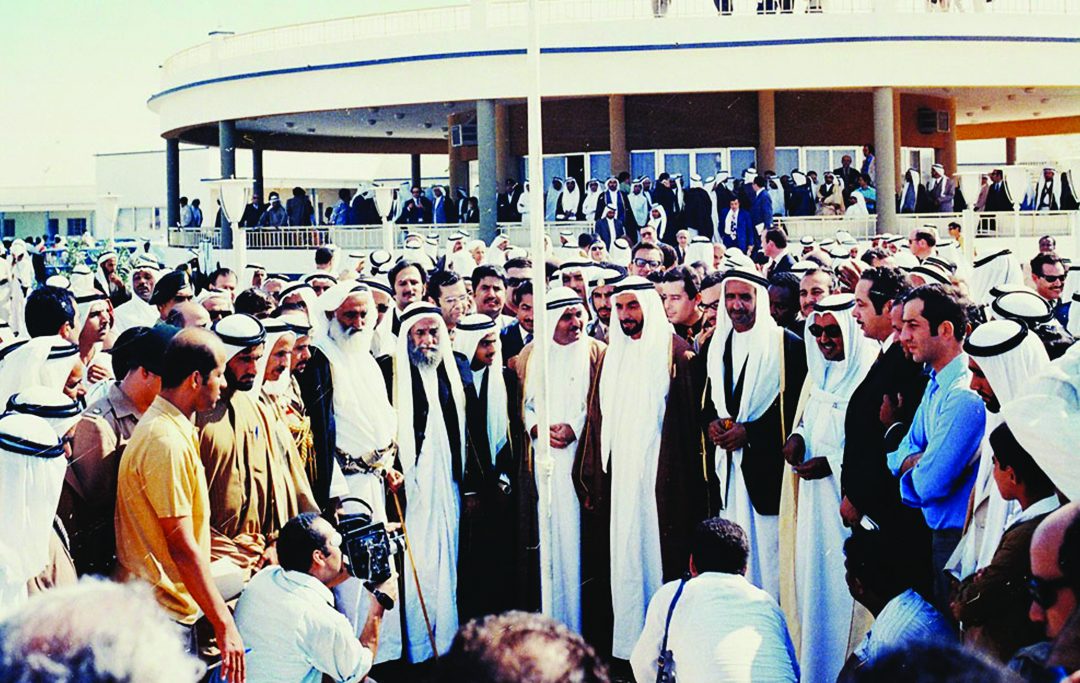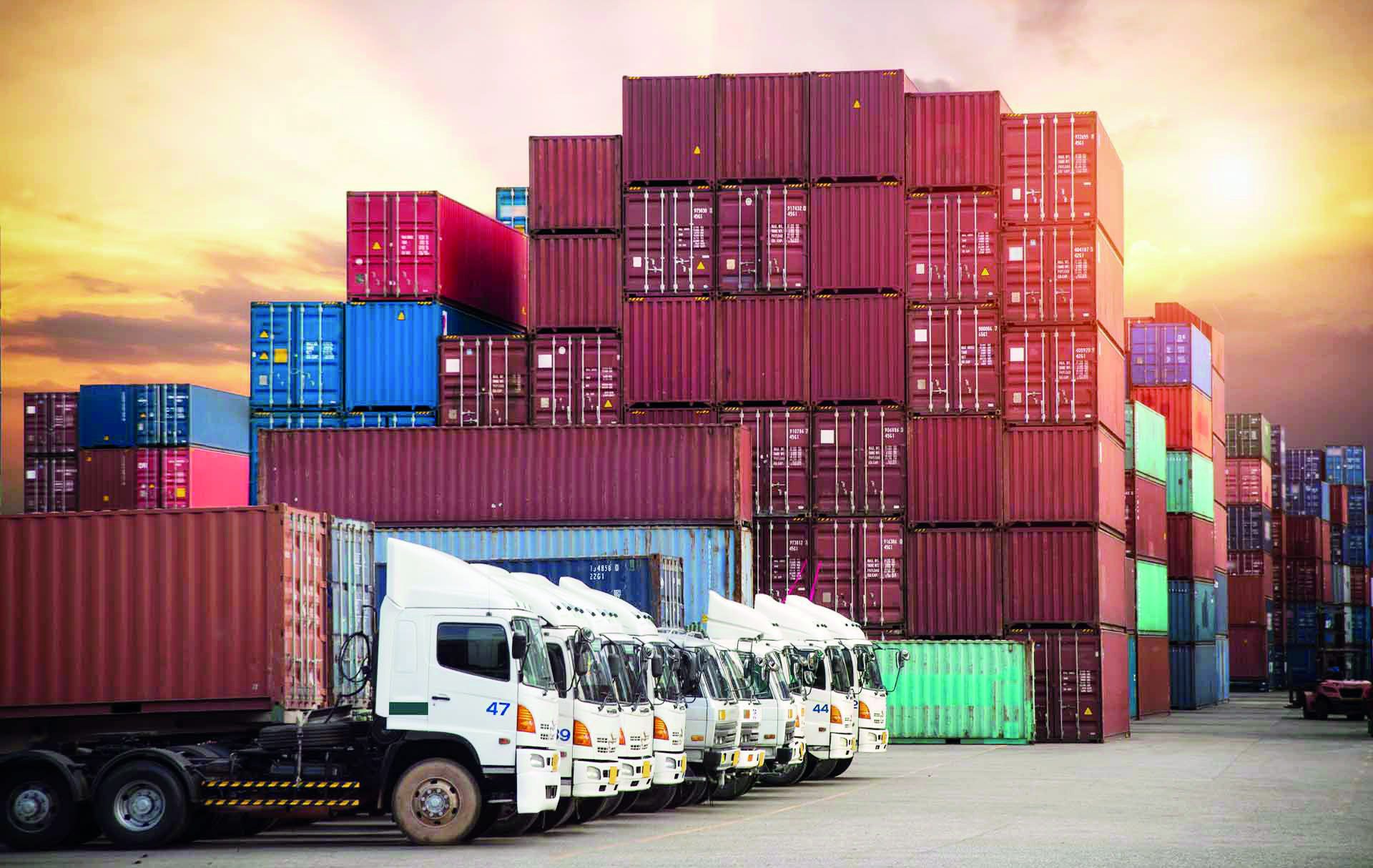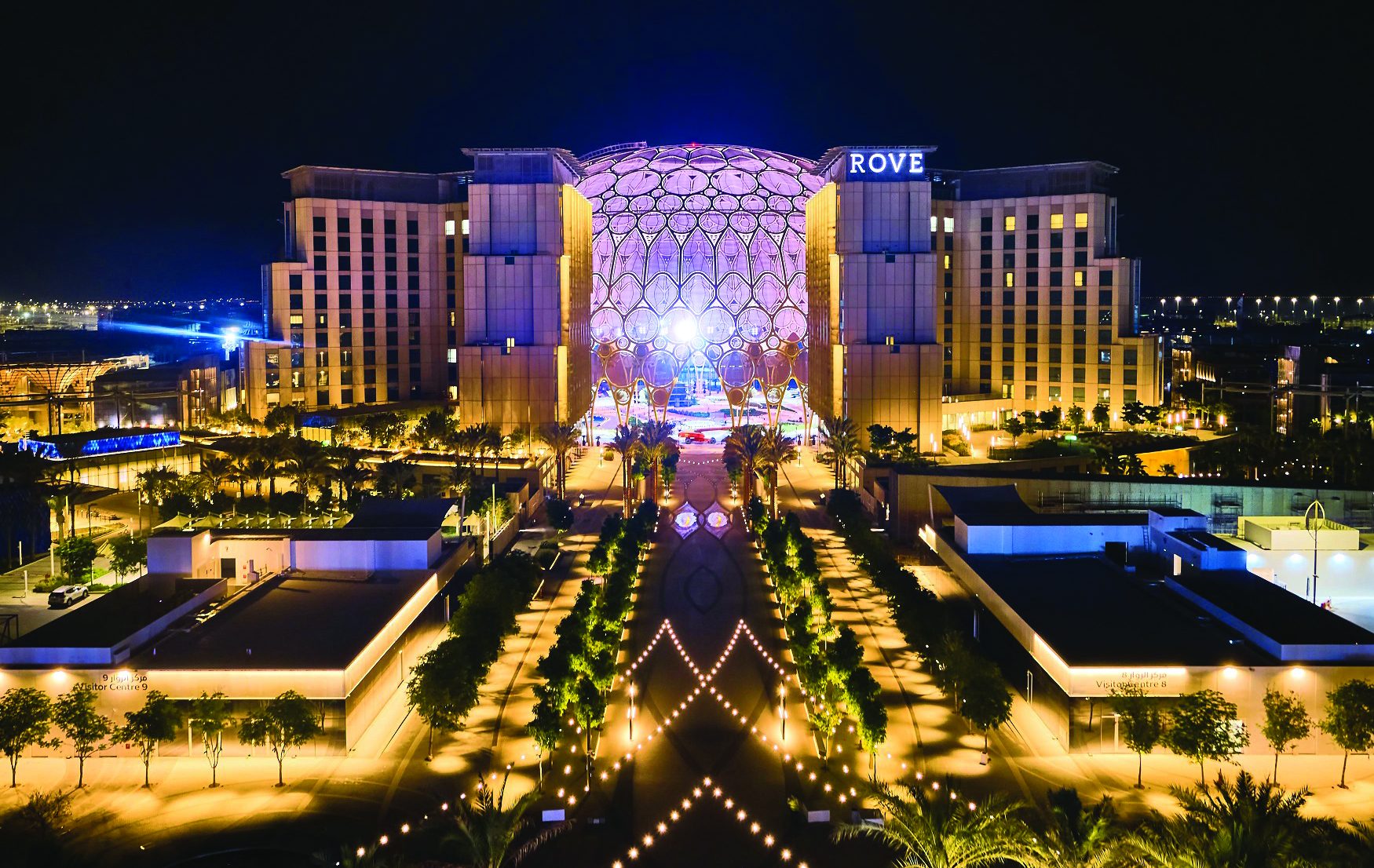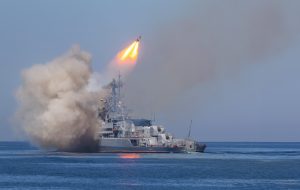The United Arab Emirates is celebrating nowadays its golden jubilee and the fiftieth anniversary of the establishment of its blessed Union on December 2, 1971. It is a defining moment in its history. Its wise political leadership wants this anniversary to serve as the second foundation of the state, and its starting point towards the bright future it plans to achieve. Its ambitious goal is to be the number one country in all development and civilizational indicators in the world.
Within this context, this paper will briefly present the most prominent features of the Emirati achievements during the past half century, and the prospects for the next fifty years in light of the ten principles defined by the “Fifty Charter”, which will serve as the basic reference for all state institutions in setting their future plans to achieve the main objectives stated in this document represented in strengthening the pillars of the Union, building a sustainable economy, harnessing all resources for a more prosperous society, and developing regional and international relations to achieve the supreme interests of the UAE and support the foundations of peace and stability in the world, as indicated by His Highness Sheikh Mohamed bin Zayed Al Nahyan, Crown Prince of Abu Dhabi and Deputy Supreme Commander of the Armed Forces, in one of his tweets.

First: Emirates of the Fifty… An inspiring success story
The UAE and its pioneering development experience represent an inspiring success story in many areas that are difficult to enumerate here, and may need volumes to include their details. Their details have established the UAE’s position as a “model country” and a source of inspiration for many countries and peoples, after it was able, within a few decades, to achieve a development miracle that is unique in the life of nations, and enhancing its positive image in the whole world as a home of goodness, tolerance, humanity and peace.
The features of this “model state” are as diverse as the fields of human development. At the political level, the experience of the Union of the United Arab Emirates stands as an important model for how to achieve unity and political integration at the Arab and regional levels. Late Sheikh Zayed Bin Sultan Al Nahyan, may his soul rest in peace, and “His brothers”, the founding leaders, consolidated the building of the Federation of the UAE, which was built fifty years ago on the voluntary will and desire for unified action among all emirates of the country. The Federation was able to withstand all the tremors that the region witnessed and to consolidate its presence and position as the most successful unitary experiment in the Middle East and perhaps the whole world.
The UAE has also succeeded during the past half century in building a unique model of its own in societal cohesion and national cohesion, which you rarely find anywhere in the world. This model is easily noticed by anyone who sets foot on the land of the Emirates. The people of the UAE spare no opportunity to express their belonging to their homeland and their love for their leadership. On the other hand, there is a wise leadership, which places the interest, welfare and happiness of citizens at the top of its priorities and considers it its compass for which it is moving, to create this unique harmony between the leadership and the citizens, which was expressed by His Highness Sheikh Mohamed bin Zayed Al Nahyan in his famous saying “The house is united”.
At the level of government administration, the UAE presents a pioneering model in rational and successful government administration, a model that is not satisfied with performance based on efficiency, saving time and effort, and the absence of bureaucracy and red tape through an unending chain of innovative initiatives aimed at keeping pace with global developments and achieving Emirati leadership, but also keen on the introduction of the latest administrative and technological systems in government institutions and the public services system, in a way that made many countries of the world request the UAE for support and assistance in modernizing their government agencies, and to make the UAE the second globally in the “Government Efficiency” axis in the Competitiveness Report, the “Competitiveness Yearbook” report Global” for 2019. Linked to this is the culture of innovation and continuous development established by the wise Emirati leadership, which has made the UAE a land of opportunities for all those seeking excellence and leadership, and the preferred destination to attract creative talents and entrepreneurs in the region and the whole world, and a model that many are trying to inspire and follow.
At the level of foreign policy, the UAE has established, during the past fifty years, a unique diplomatic school of its own based on firm foundations based on supporting the causes of truth, justice, peace and development in all parts of the world. This school has succeeded in making the UAE the loyal friend of all countries and peoples, and in enhancing the position of the UAE and its positive image in the whole world by building bridges of friendship and cooperation with different countries of the world, and extending a helping hand and assistance to everyone who is anxious in any part of the world. Serious action to achieve peace and stability in the region and the world through mediation efforts, trying to contain crises, actively participating in international peacekeeping forces, and providing humanitarian and relief assistance to conflict countries, in addition to the state’s important role in combating hate crimes, violence and terrorism, and spreading the values of tolerance, coexistence and human brotherhood, which has grown rapidly. big in recent years.
This effective and balanced foreign policy pursued by the state made international acceptance of it unmatched by any other country, and facilitated the state’s mission in winning its diplomatic and development battles, including, but not limited to, the UAE’s victory in June 2009 to host the headquarters of the International Renewable Energy Agency (IRENA). And winning the bid to host the International Expo 2020 in Dubai, after a strong international competition that was decided in favor of the UAE, and winning membership in the UN Security Council twice, and finally winning the right to host the Conference of the Parties to the United Nations Framework Convention on Climate Change (COP28) in 2023. This broad international acceptance is also embodied in
The country tops the international indicators concerned with measuring the soft power of countries at the regional and international levels, as the UAE ranked first in the Arab world and 17th globally in the “Soft Power Index” according to the results of the “Soft Power Index 2021 Global Report”, and the UAE passport ranked first in the world from Where strength, according to the Passport index, is the largest evidence of the world’s acceptance of the UAE, its people, and its policies.

On the economic and development level, the UAE has succeeded over the course of the last half century in presenting a pioneering regional and global development model, a model based on achieving prosperity and seeking to meet development challenges with strategies that prepare for the future. This model has proven its effectiveness to the whole world, as the UAE economy has made qualitative leaps in a few decades, and the state has succeeded in achieving a high level of luxury and standard of living for all its citizens and residents on its land, and has turned into a regional center for trade, finance, investment and tourism, after becoming the second largest economic power In the Arab world, and one of the most important emerging economic powers in the Middle East and the world.
Over the past five decades, the country has succeeded in developing an active and prosperous economic business environment that attracts foreign direct investment, until it has become one of the most successful countries in the world in attracting foreign investments, as it occupies the first position in the Arab world and occupies an advanced position in the world, according to a report issued by the World Bank and two magazines. Forbes and Seaworld ranked first regionally and fourth globally in the Global Entrepreneurship Index 2020, according to the report issued by the Global Entrepreneurship Monitor in February 2021, ahead of many major global economies.
The strength of the UAE development model in the country’s leadership for the fourth year in a row was the countries of the Middle East and North Africa region in the report of the World Competitiveness Yearbook 2020, issued by the Global Competitiveness Center of the International Institute for Management Development in the Swiss city of Lausanne, which ranked the country in the ninth place globally among the countries with the most competitiveness in the world. The UAE maintained its position among the top ten competitive countries in the world during the year 2020, ahead of countries such as the United States, Ireland, Finland, Luxembourg, Germany and the United Kingdom. Seniors in the Global Competitiveness Yearbook Report, for four consecutive years, since joining the top ten list in 2017. According to the report’s results, the UAE ranked first globally in 23 indicators and sub-axes, while it ranked among the top five globally in 59 indicators and among the top ten globally in 106 indicators, out of a total of 338 indicators covered by the report.
On the cultural and civilizational level, the UAE has succeeded in building a model that coexists with cultural differences that represent a chronic concern for many countries in the region, where more than 200 nationalities live in the UAE in harmony. Strides were made by the launch of the Human Fraternity Document in 2019, the historical document that the United Nations adopted on the day it was signed in Abu Dhabi as an International Day of Human Fraternity, while the state is currently working on building the “Abrahamic Family House”, as a unique platform that brings together the leaders of the three Abrahamic religions, Islam, Christianity and Judaism. To be a beacon of tolerance and coexistence. Through its pioneering value system, the UAE has become a leading global model in spreading the values of tolerance, human brotherhood, and constructive openness to the other and building bridges with all peoples until it became an international capital of tolerance and an oasis of coexistence and peace in the region and the world.
The bottom line is that the outcome of half a century of the UAE’s life, thanks to the wisdom of its wise leadership, has produced a “model country” that has become a source of inspiration for all countries and peoples of the world.

Second: The “Fifty(Year) Principles'” Document and Moving Toward the Future
The United Arab Emirates, as a future country, is always striving to achieve regional and global leadership and excellence. Its leadership is not satisfied with the achievements despite their greatness. This leadership realizes that the world is in a constant movement of competition in order to achieve excellence and leadership, and those who do not enter this race or slow down will lag behind human and civilized progress, which is why it is constantly working to achieve its ambitious plans for the future, foremost of which is its first goal to be the number one country by 2071. Within this context, the Emirati leadership wanted the fiftieth year celebrations to be a foundation for a new major starting point towards the future it seeks, so the “Fifty(Years’) Principles” document was announced and adopted by His Highness Sheikh Khalifa bin Zayed Al Nahyan, President of the UAE and Supreme Commander of the Armed Forces, “may God protect him;” His Highness Sheikh Mohammed bin Rashid Al Maktoum, Vice President and Prime Minister of the UAE and Ruler of Dubai, and His Highness Sheikh Mohamed bin Zayed Al Nahyan, Crown Prince of Abu Dhabi and Deputy Supreme Commander of the Armed Forces, last September to serve as a road map that defines the strategic path that will be taken.
This document includes ten basic principles that clearly reveal the depth of the future vision adopted by the UAE leadership and its comprehensiveness of future fields of human progress, which is based on basic axes, namely, the knowledge economy, investment in local human cadres, in parallel with attracting creators, and consolidating the UAE’s position as a capital for talent, companies and investments in the scientific, technical and digital fields, as well as focusing on technology and building a technological environment that hosts innovation and work to promote regional and global peace and stability, considering that security and development are two sides of the same coin.
In general, these ten principles can be included in four main axes that the UAE will work on in order to achieve its future leadership, which are as follows:
Strengthening the Union and consolidating its pillars: The founding of the Union State in 1971 was the basis from which the UAE success story was launched, and the focal point on which all the achievements made during the past five decades were built, when the “home is united” and the values of solidarity and internal harmony between the leadership and the people is firm and strong, this means achieving internal stability and enhancing societal cohesion represents the first condition for any present or future development renaissance. Hence, the first principle came to confirm that the major main priority will remain strengthening the Union, as institutions, legislation, powers and budgets, and developing all regions of the country, growth wise and economy wise. It is not related to the first principle, as the rest of the ten principles all reflect the spirit of the Union and its lofty values, which are based on tolerance, coexistence, goodness, peace, human giving and the upgrading of human national capabilities, which formed basic pillars of the UAE’s development march during the past half century and will remain so during the next fifty years.
Consolidating and enhancing the Emirati development experience: by building the best and most active economy in the world, and by continuing to invest in the development of human capital, by developing education, attracting talents, retaining specialists, and continuously building skills as a bet to maintain the UAE’s supremacy and leadership, in addition to focusing on building the knowledge economy and investing in modern technologies that achieve digital, technical and scientific superiority for the UAE, making it the next capital of the world in these vital areas that will redraw the features of the global development and economic landscape in the future.
The development of the economy occupies the most prominent area of interest within the principles of the document, as many of the ten principles serve to achieve the goal of building the best economy in the world, so that the document considered that the main objective of the UAE foreign policy in the next stage will be to serve the economy, which in turn aims to provide a better life for the Union people.
Enhancing the bright positive image of the United Arab Emirates abroad: by maintaining and strengthening the system of values established in the UAE and based on openness, tolerance, preservation of rights, consolidation of the state of justice, preservation of human dignity, respect for cultures, consolidation of human brotherhood and respect for national identity, which is the system that made the name of the Emirates, it is always associated with these lofty human values in all parts of the world, in addition to continuing and strengthening the humanitarian role of the UAE globally through the diplomacy of humanitarian and development aid, which made the white hands of the Emirates reach every corner of the earth, regardless of religion, gender, culture or any other considerations. The document clearly considers that this task is a national task borne by all Emirati institutions, as everyone is concerned with working to consolidate the positive global reputation of the Emirates and its shining image in the whole world.
The fourth and final axis relates to the foreign policy of the UAE and its efforts to achieve global peace and stability: the principles that came in the document in this regard did not differ on the foundations on which the UAE foreign policy has been based since the first beginnings of its establishment, and whose foundations laid by the late Sheikh Zayed bin Sultan Al Nahyan, may his soul rest in peace, where the document emphasized the principle of good neighborliness as a basis for stability, considering that the geographical, popular and cultural environment in which the state lives represents the first line of defense for its security, safety and future development, and that developing stable and positive political, economic and popular relations with this environment is considered one of the most important priorities of the country’s foreign policy, and within this context, the leading Emirati role in the Gulf and Arab regional work systems, and the Emirati endeavor to build good and friendly relations with the rest of the region’s countries are based on mutual respect, common interests, and non-interference in internal affairs.
As a country of peace, the Fifty Principles affirmed that the call for peace, negotiations and dialogue to resolve all differences is the basis of the UAE’s foreign policy, and that striving with regional partners and global friends to consolidate regional and global peace and stability is a key driver of foreign policy. They also stressed that the state will remain supportive, through its foreign policy, to all initiatives, pledges and international organizations calling for peace, openness and human fraternity.
In general, two important things are noted on the ten principles included in the document as a whole. The first is that these principles are inseparable from the established principles, constants and values established by the first founding leaders, led by the late Sheikh Zayed bin Sultan Al Nahyan, may God bless him and grant him peace, which the state and wise leadership have followed during the past fifty years, rather than building on them, and working on consolidating them with a new perspective that takes into account the developments that the world around us will witness in the future. The second thing is that the dissemination of these principles allows all concerned national institutions to inspire their contents and work to implement them, which will accelerate the success of these institutions in achieving the goals sought by the fifty principles.
Conclusion
With the launch of the UAE’s fiftieth year celebrations, the country is setting its feet on the beginning of a new path of excellence, leadership and comprehensive renaissance, through which it seeks to achieve an ambitious goal of being the best country in the world, a goal that is not easy in light of the raging global competition, however. There is no doubt here about the ability of the UAE and its wise leadership to achieve this ambitious goal by the UAE’s centenary in 2071, and perhaps much earlier.
The UAE is currently leading the world in dozens of development indicators, and it is constantly developing plans and strategies that help it achieve its ambitious goals in the future and works to follow up their implementation. This is not only related to the fiftieth principles document, but it is a general philosophy that governs the work of the state, its leadership and all its institutions since its foundation until today. This can be clearly seen through dozens of ambitious plans and strategies that it has developed for the future over the past two decades, such as: the UAE Digital Government Strategy 2025, the UAE Artificial Intelligence Strategy, the UAE Strategy for the Fourth Industrial Revolution, the National Strategy for Attracting and Retaining Talents, and the National Food Security Strategy 2051, the National Space Strategy 2030, and many other future plans set by the state to achieve its goal of leadership and excellence in the future, which also fall within the framework of the ten principles of the fiftieth document. What reinforces optimism is that the state has already begun to develop and implement ambitious projects that achieve this vision, for example, the announcement by His Highness Sheikh Mohammed bin Rashid Al Maktoum, Vice President and Prime Minister of the UAE and Ruler of Dubai, may God protect him, the national strategy Industry and technology, or what is known as the “300 billion project,” as a government strategy that is the most comprehensive of its kind, to advance the industrial sector in the country and expand its size and scope, to be a major lever for the national economy. The UAE also launched a successful space exploration program, which took it to the International Space Station and to Mars, while it announced ambitious plans to explore Venus in the coming years, and also completed the construction and operation of the first Arab nuclear reactor, the Barakah reactor, which made the UAE the first Arab country to enter the world of nuclear technology, and many other projects and strategies that confirm that the UAE has already begun implementing its vision for the next fifty years.
There is no dispute that the “Fifty Principles” document, with its ten principles, will represent a clear roadmap towards building a better future for the UAE and its people during the next fifty years, and will contribute to consolidating the strength of the Emirati model as the most inspiring model for countries and peoples in achieving development, prosperity and peace.
» By: Dr. Fattouh Haykal
Research Director – TRENDS Research and Advisory













